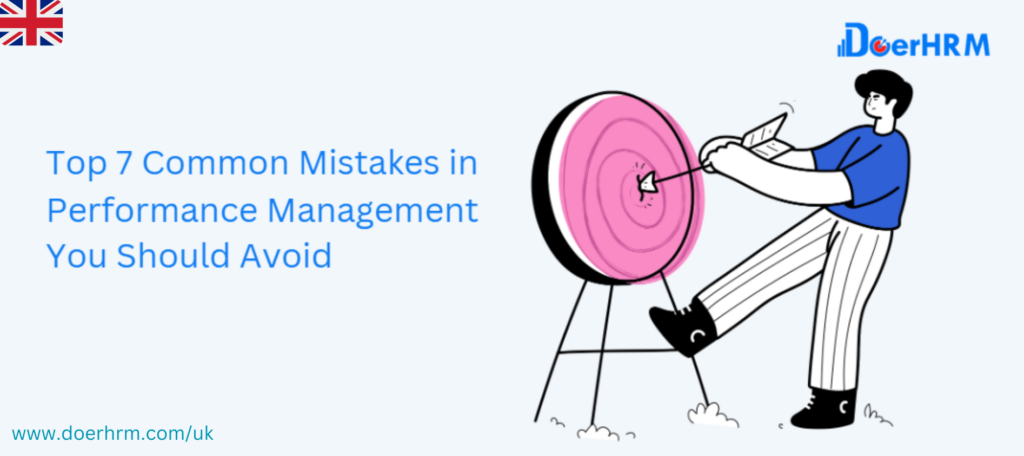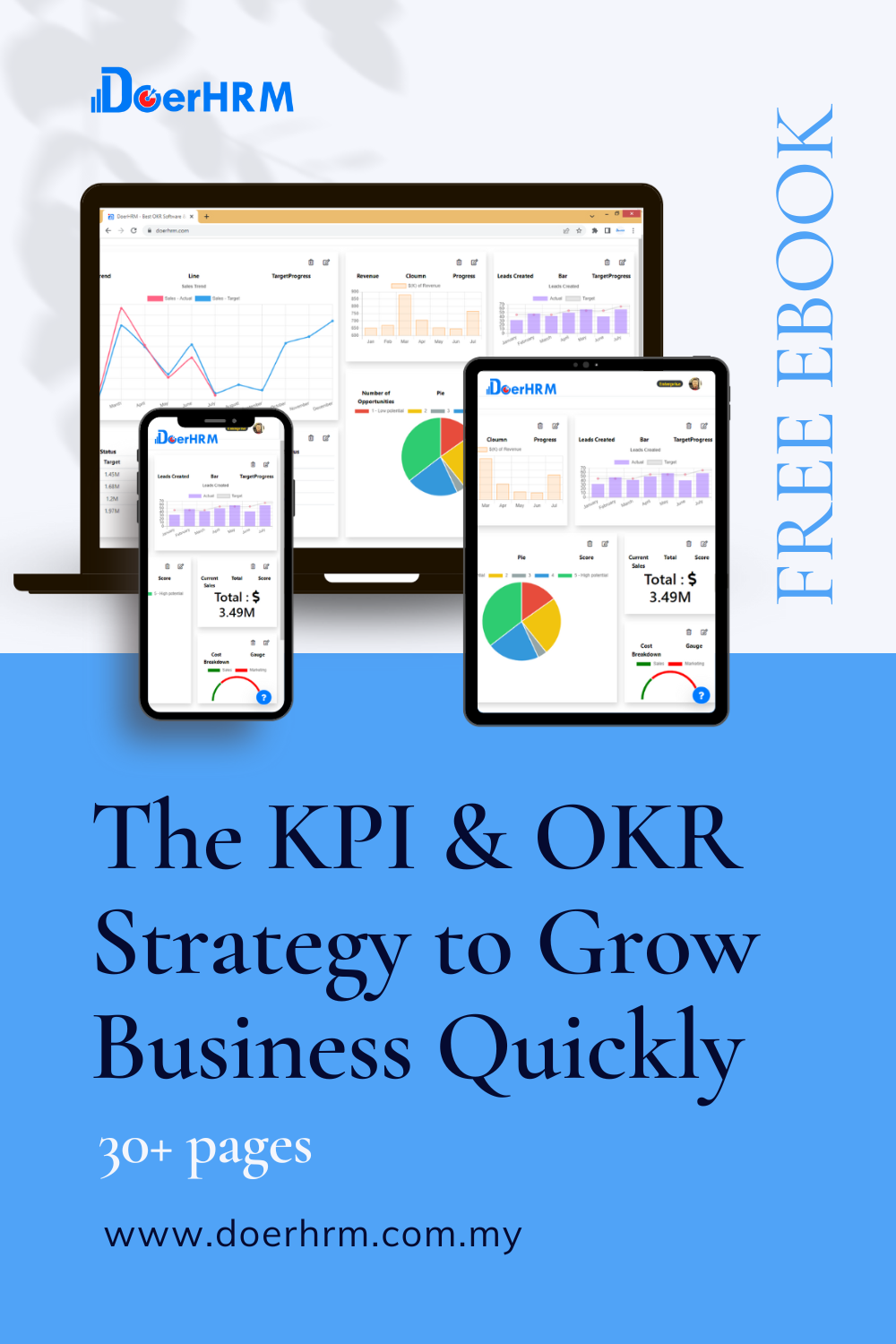Evaluating an employee’s work is a crucial aspect of their role. It determines whether they have performed well enough to warrant a raise or promotion. Most individuals approach work evaluations with caution, as no one wishes to be perceived negatively, even when addressing subpar performance.
An effective performance management system aids in identifying employee challenges and devising solutions to address them. This enhances their work quality and subsequently boosts productivity.
However, there are certain performance management errors that HR administrators, managers, and CEOs should strive to minimize, even unintentionally. These mistakes can vary from being overly critical to not providing sufficient feedback. Performance management errors can prove costly as they are fundamental to fostering a high-performance culture.
What is a culture of high performance?
We say that an organisation’s culture is how things are really done there. It can be measured by seeing how people think, act, and do their jobs. A high-performance culture is a group of people who work together to get the most out of each other in the short and long term. We think people change when their surroundings do.
We also think that a leader’s job is to make sure that their people always give their best in a way that fits with the organisation’s core values, behaviours, and strategies.
What is meant by "performance management"?
Performance management is the processes and practises you use to give your employees information about how they are doing in their jobs. Strong performance management practices help set clear expectations for performance, let people know where they stand in terms of performance, give positive feedback for behaviours that are wanted, and give negative feedback for behaviours that aren’t wanted.
Managers, like everyone else, have their flaws. However, being aware of these mistakes may point you in the direction of effective leadership and motivate you to make necessary changes.
Here are seven common mistakes made in performance evaluation and management.
- Not Setting Clear Expectations. Not making clear what you want from your employees is one of the biggest mistakes that can hurt the whole organisation. It is important to set clear goals and have your employees understand those goals. When goals are clear, both to the manager and employee, it becomes easier to meet goals. Not having clear goals or expectations can literally lead to everything being a muddled mess.
- Your Process Doesn’t Help Employee Development. Your process for managing employees’ performance should help them figure out what their strong and weak points are. It should help them get better and know how to reach the goals of their organisation. Your process should make your employees feel fulfilled. Most ways of managing performance tend to focus on the money side of performance reviews, when it should be the other way around.
- Holding On To Low Performing Employees. Another big mistake that employers make is not firing people who don’t do their jobs well. Over time, employees who don’t do their jobs well become a burden and make other employees very angry. It’s alright to give employees first and second chances, but beyond that, you need to decide if those chances are worth it.
- Hoping For The Best – Waiting For Performance Appraisal To Give Feedback. Managers often make this mistake; they wait until performance reviews, which are usually at the end of the year, to tell their employees how they did. For feedback to be useful, it needs to be new and up-to-date. Old feedback doesn’t help anyone. Think about it like food. Which do you think is better for your health: fresh bread or bread that’s been around for more than a year?
- Few Rewards For Good Performance. Giving incentives is one of the most important parts of performance reviews. When employees work hard and do their jobs the way they’re supposed to, there’s nothing wrong with giving them a bonus. Not all incentives are money-based. They could be perks, privileges, or anything else a manager thinks an employee would like.
- Trying To Find Fault Instead Of Working To Improve Performance. Performance management is not about finding faults. Instead, it is about being clear, being accountable, getting rewards, being recognised, and getting better. People make mistakes. As a leader, it’s your job to help your direct reports learn from their mistakes and get a clear picture of how they’re doing against a clear standard. You should also help them continue to learn, improve, and do well.
- Considering Performance To Be A One-Time Event. The number two performance management error is approaching performance management as a one-time event rather than a continuous process to inform workers of their status and help them advance in their careers. The performance review should be only one part of a larger performance management programme. Performance management should be a continual activity rather than a one-time occurrence.
How do you plan to prevent these mistakes from happening?
Having an awareness of these typical missteps in management and the skills to prevent them are strong indicators of future success as a manager.
However, remember that your employees, who know your company as well as you do, may be a valuable resource in identifying and avoiding potential dangers, so have an open line of communication with them at all times.
Here are some best practises in performance management:
- Get as many people as you can to help. Include as many people as you can in the review of performance. The data you get from performance reviews is more accurate the more people you ask to take part.
- Check out your competitors. Find out how your competitors mark the end of the year. Find out what they test for, how often, and who takes part. This will help you figure out what your company needs to do to stay competitive. In addition to keeping your team “up-to-date” on the “rules of the game,” you should.
- Communicate, communicate and communicate. This is and will always be your best friend when it comes to making performance reviews work and be useful. This is true both for HR tasks and for making employees more engaged and productive.
- Make places where people can talk. After sending the results to the team, make places for people to talk about them. Make sure that managers talk to each of their reports again and again. This makes it possible to finish the cycle, which leads to making action plans and deciding what to do next. This will make sure that everyone in the company gets something useful out of performance reviews.
- Try something else. Use other methods that work with this measurement, such as 1:1 meetings, team mood maps, eNPS, and heat maps of group evolution, among others.
Conclusion
Keep in mind that every organization stands to gain from an effective performance management system. A prosperous performance management strategy hinges on establishing transparent, equitable, and pertinent performance objectives that offer individuals, teams, and departments a clear sense of direction, enable performance coaching, and support professional development.
Such a system aids managers in steering their employees toward the right path and identifying valuable talent. Without such a framework in place, performance management errors are inevitable, resulting in financial losses and decreased productivity.









